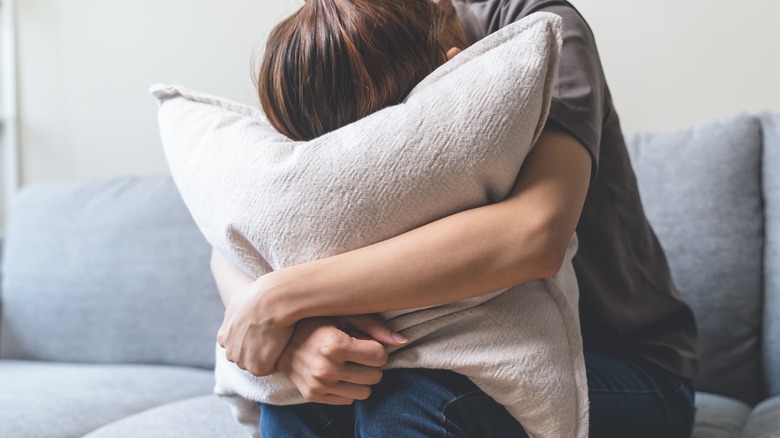In the hustle and bustle of modern life, it’s all too easy to get caught up in a whirlwind of stress and anxiety. While some degree of worry is inevitable in life, some people deal with a more pervasive and difficult-to-diagnose form of anxiety. You may have free-floating anxiety if you consistently feel tense or anxious for no obvious reason.
Since free-floating anxiety isn’t always related to one particular event or circumstance, it might be challenging to identify. Instead, according to Anxiety.org, it’s a persistent feeling of concern or unease that seems to hang over your daily existence. Generalized anxiety disorder (GAD), which can cause a variety of psychological and physiological symptoms, is another name for it. Although the precise causes of GAD are not fully understood, a number of genetic, environmental, and psychological variables may contribute to its occurrence.
This article will help you better understand the symptoms of free-floating anxiety as well as practical coping mechanisms for dealing with this widespread mental health issue. You may take action to control and overcome it by identifying the signs, which will ultimately result in a more balanced and contented life.
Recognizing the signs of free-floating anxiety

Excessive fear is one of the key signs of free-floating anxiety, according to Healthline. Even if there is no obvious cause for your worries and fears, they may keep you up at night. This anxiety may be over various things, from your relationships to your health, and its magnitude frequently outweighs the possibility of the feared outcome. Another indicator of floating anxiety is trouble focusing. Constant worry can make it difficult to concentrate on the current activities. You can become more upset due to the ongoing anxiety — being too irritated can also make you more snappy.
Tension in the muscles is a typical physical sign. According to Healthline, muscle tension is the condition in which muscles are held partially or totally tightened for a long time. The contraction that results from stress or physical strain may be deliberate or involuntary. When you’re feeling anxious, your body releases stress hormones such as adrenaline to prepare your body to deal with a perceived threat, a process known as the “fight-or-flight” response — this reaction can cause your muscles to tighten, leading to discomfort, says the Calm Clinic.
Other typical physical symptoms, including headaches and digestive problems, are also possible. Additionally, sleep disorders such as insomnia or restless sleep may be experienced by those with GAD. Another characteristic of free-floating anxiety is a feeling of restlessness or being on edge, which makes it difficult for you to unwind or relax.
Coping strategies for free-floating anxiety

It’s critical to be aware of appropriate coping mechanisms in case you see any of the symptoms of free-floating anxiety in yourself. These techniques can help you control and reduce these feelings. Meditation and mindfulness practices are two commonly used methods for controlling irrational anxiety. According to the American Psychological Association, staying present can help your brain become less reactive to thoughts that make you anxious. Daily mindfulness exercises like meditation can ultimately increase your sense of calm and stability in life.
Starting an exercise routine is another method for lowering unchecked anxiousness. Physical exercise and a well-balanced diet can help reduce anxiety and improve overall health. The Mayo Clinic also recommends avoiding excessive coffee consumption and eating nutritious meals frequently to help control mood. Having a solid support system is also essential for managing anxiety. Share your experiences and look for understanding by contacting friends, family, or support groups. Finding allies who understand your problems can be reassuring and empowering.
Last but not least, getting professional assistance from a mental health specialist, such as a therapist or counselor, might be helpful. They may suggest therapies like cognitive-behavioral therapy (CBT) or medication to help manage your anxiety and provide individualized coping methods. Finally, please remember to practice self-compassion and patience with yourself as you go down this path to improved mental well-being.




